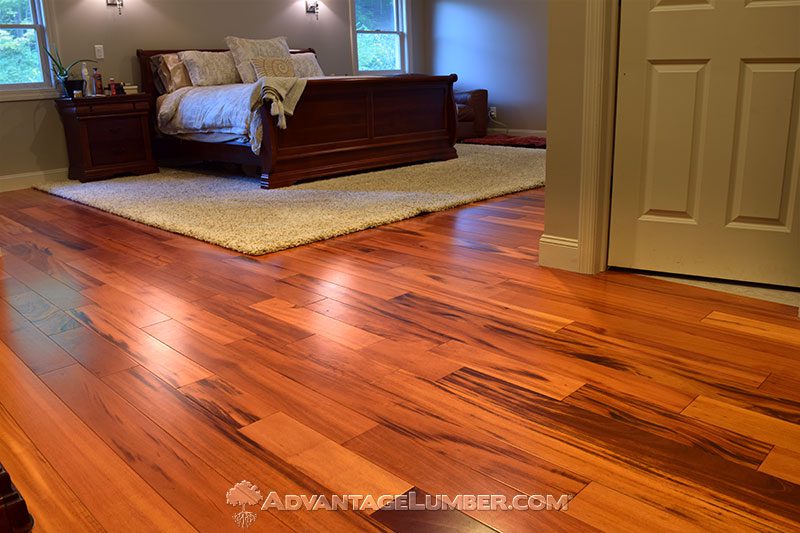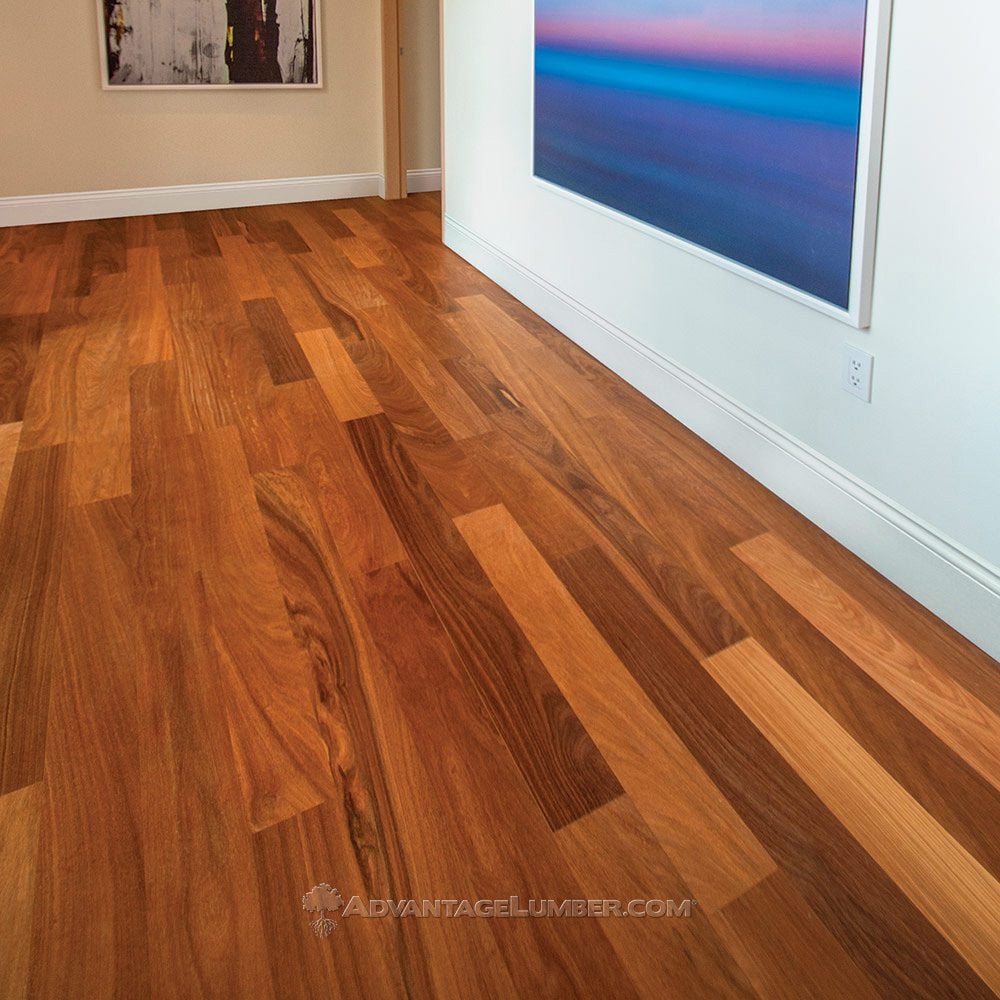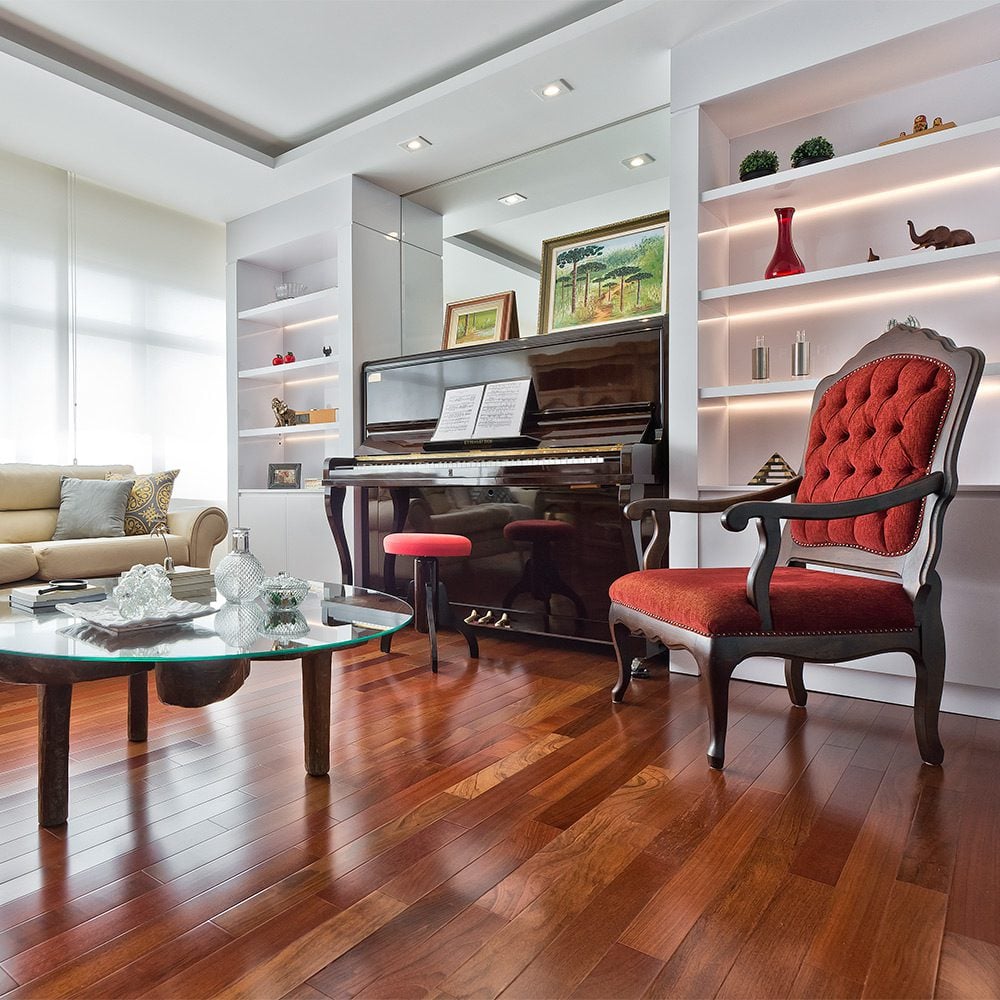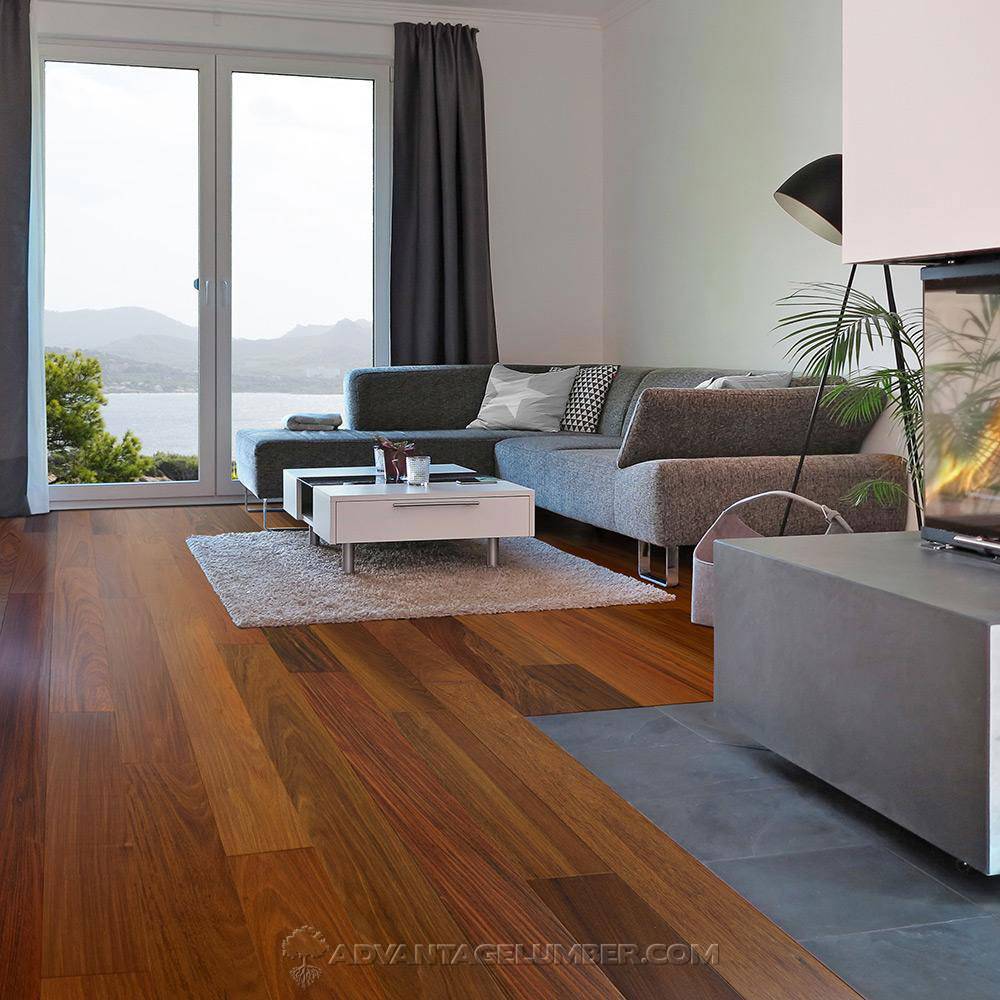Engineered hardwood flooring is a popular choice for homeowners who want the beauty of natural wood combined with enhanced durability. Unlike solid hardwood, engineered hardwood is designed to withstand higher moisture levels and fluctuations in temperature, making it ideal for installation over concrete subfloors, in dry basements, and even in bathrooms.
But what makes engineered hardwood flooring truly durable? Let’s take a closer look at the three key factors:
1. The Plywood Core: Stability Against Moisture
One of the main advantages of engineered hardwood flooring is its plywood core, which provides excellent dimensional stability. This layered construction helps prevent cupping and warping that can occur in high-moisture environments.
- Ideal for Basements & Concrete Subfloors – Unlike solid hardwood, engineered hardwood doesn’t expand and contract as much with changes in humidity. This makes it a superior choice for installation over concrete or in moisture-prone areas. You should still prevent the floors from getting wet since standing water can cause damage to any wood floor.
- Resistant to Warping – The multi-layered plywood core prevents excessive movement in the flooring, ensuring long-term durability and stability.
This added resistance to moisture-related damage is one of the key reasons why engineered hardwood outperforms solid hardwood in certain environments.
2. The Hardwood Wear Layer: Strength and Beauty
The top layer of engineered hardwood is a real hardwood veneer, and its durability is largely determined by the wood species used. Harder woods resist dents, scratches, and wear better over time. This is where the Janka hardness rating comes into play.
What Is the Janka Hardness Rating?
The Janka hardness test measures the force required to embed a steel ball halfway into a piece of wood. The higher the Janka rating, the harder the wood and the more resistant it is to scratches and dents.
Best Wood Species for Durability
Some of the hardest and most durable species for engineered hardwood flooring include:
- Ipe (Brazilian Walnut) – 3,680 Janka Rating
- One of the hardest woods available, offering exceptional resistance to wear and impact.
- Cumaru (Brazilian Teak) – 3,540 Janka Rating
- Almost as hard as Ipe, Cumaru or Brazilian Teak offers a rich reddish brown color opposed to Ipe’s dark brown color.
- Brazilian Cherry (Jatoba) – 2,350 Janka Rating
- Known for its rich color and high hardness, making it a long-lasting flooring option.
- Tigerwood – 2,160 Janka Rating
- Striking grain patterns with impressive durability against scratches and dents.
Choosing a high-Janka-rated hardwood wear layer ensures that engineered hardwood floors will hold up against heavy foot traffic, furniture, and everyday use.




3. The Finish: The Final Layer of Protection
Even the hardest wood species need a strong finish to maximize their durability. Most prefinished engineered hardwood floors are coated with a seven-layer aluminum oxide finish, which is considered one of the most durable options available.
Why Is Aluminum Oxide Finish Important?
- Scratch & Wear Resistance – Aluminum oxide is highly resistant to scratches, scuffs, and general wear.
- Long-Lasting Protection – Unlike traditional polyurethane, aluminum oxide finishes last decades without needing refinishing.
- UV Protection – Helps prevent fading from sunlight exposure, keeping the floor looking new for longer.
This industry-standard finish ensures that engineered hardwood floors not only remain strong but also maintain their beauty over time.
Conclusion: Choosing the Most Durable Engineered Hardwood
When selecting the most durable engineered hardwood flooring, consider these three key factors:
- A stable plywood core that prevents warping in high-moisture areas.
- A hardwood wear layer made from dense, high-Janka-rated species like Ipe, Cumaru, Brazilian Cherry, or Tigerwood.
- A tough aluminum oxide finish that protects against scratches and everyday wear.
By combining these features, engineered hardwood flooring offers an ideal balance of beauty, durability, and moisture resistance—making it one of the best flooring options for homeowners looking for longevity and performance.
Would you like recommendations for specific brands or products that fit these durability criteria? Let us know!